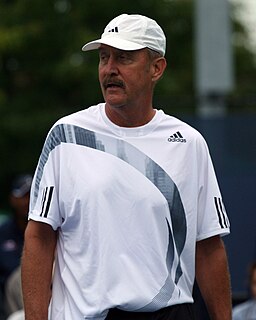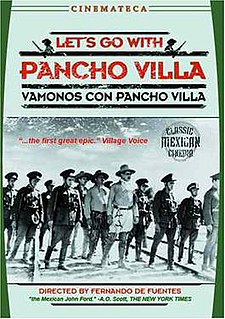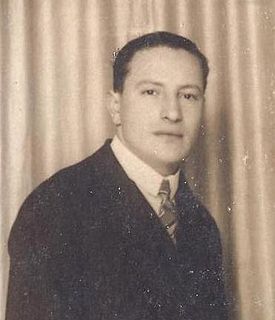See also
| This disambiguation page lists articles associated with the title Pancho. If an internal link led you here, you may wish to change the link to point directly to the intended article. |
Pancho is a nickname, forename, and surname.
Pancho may also refer to:
| This disambiguation page lists articles associated with the title Pancho. If an internal link led you here, you may wish to change the link to point directly to the intended article. |

Viva Villa! is a 1934 American pre-Code film directed by Jack Conway and starring Wallace Beery as Mexican revolutionary Pancho Villa. The screenplay was written by Ben Hecht, adapted from the 1933 book Viva Villa! by Edgecumb Pinchon and O. B. Stade. The film was shot on location in Mexico and produced by David O. Selznick. There was uncredited assistance with the script by Howard Hawks, James Kevin McGuinness, and Howard Emmett Rogers. Hawks and William A. Wellman were also uncredited directors on the film.

Francisco "Pancho" Villa was a Mexican revolutionary general and one of the most prominent figures of the Mexican Revolution.

Pancho & Lefty is a honky tonk album by outlaw country musicians Merle Haggard and Willie Nelson, released in 1983. Original vinyl copies from 1983 give the album's title as "Poncho & Lefty" on the cover, as well as on the inner sleeve and the record label; the album's title track is similarly rendered "Poncho & Lefty" on the cover, inner sleeve, and label. Later editions correct the title to the intended "Pancho & Lefty". They are backed by Don Markham of The Strangers.

Ricardo Alonso "Pancho" González, known sometimes as Richard Gonzales, was an American tennis player. He won 14 major singles titles and was the dominant professional of the 1950s, winning seven world professional championship tours between 1954 and 1961; he still holds the men's all-time record of being ranked world No. 1 for eight years or eight consecutive years, depending upon the rankings source.
"Pancho and Lefty" is a song written by country music artist Townes Van Zandt. Often considered his "most enduring and well-known song," Van Zandt first recorded it for his 1972 album The Late Great Townes Van Zandt. The song has been recorded by several artists since its composition and performance by Van Zandt, with the Willie Nelson and Merle Haggard version selling the most copies and reaching the Billboard top hits list.

Stanley Roger Smith is a former world No. 1 American tennis player and two-time Grand Slam singles champion who also, with his partner Bob Lutz, formed one of the most successful doubles teams of all time. Together, they won many major titles all over the world. In 1970, Smith won the first year end championship Masters Grand Prix title. Smith's two major singles titles were the 1971 US Open, and 1972 Wimbledon. In 1972, he was the year-ending world No. 1 singles player. In 1973, he won his second and last year end championship title at the Dallas WCT Finals. In addition, he won four Grand Prix Championship Series titles. His name is also used in a popular brand of tennis shoes. In his early years he improved his tennis game through lessons from Pancho Segura, the Pasadena Tennis Patrons, and the sponsorship of the Southern California Tennis Association headed by Perry T. Jones.

Let's Go with Pancho Villa is a Mexican motion picture directed by Fernando de Fuentes in 1936, the last of the director's Revolution Trilogy, besides El prisionero trece and El compadre Mendoza.

Originally, Trio Los Panchos are a Latin trío romántico formed in New York City in 1944 by Chucho Navarro, Alfredo Gil and Hernando Avilés. The trio became one of the leading exponents of the bolero and the romantic ballad in Latin America. Its current members are Chucho Navarro Jr., Eduardo Beristian and Misael Reyes.

The Cisco Kid is a fictional character found in numerous film, radio, television and comic book series based on the fictional Western character created by O. Henry in his 1907 short story "The Caballero's Way", published in the collection Heart of the West, as well as in Everybody's Magazine, v17, July 1907. Originally a murderous criminal in O. Henry's story, the Kid was depicted as a heroic Mexican caballero later in films, radio and television adaptations.

Pancho Haralanov Vladigerov was a Bulgarian composer, pedagogue, and pianist.

Florence Lowe "Pancho" Barnes was a pioneer aviator and a founder of the first movie stunt pilots' union. In 1930, she broke Amelia Earhart's air speed record. Barnes raced in the Women's Air Derby and was a member of the Ninety-Nines. In later years, she was known as the owner of the Happy Bottom Riding Club, a bar and restaurant in the Mojave Desert, Southern California, catering to the legendary test pilots and aviators who worked nearby.

Duane C. Carter Jr., nicknamed "Pancho", is a retired American race car driver. He is most famous for his participation in CART races. He won the pole position for the 1985 Indianapolis 500, and won the 1981 Michigan 500.

Maulik Navin Pancholy is an American actor and author who is best known for his roles as Jonathan on 30 Rock, Baljeet Tjinder in Phineas and Ferb, Neal in the first season of Whitney, and characters named Sanjay Patel in both Weeds and Sanjay and Craig. His debut novel, The Best at It, is about a gay, Indian American boy coming into his own.
Pancho Gonzales defeated Eric Sturgess 6–2, 6–3, 14–12 in the final to win the Men's Singles tennis title at the 1948 U.S. National Championships.
Pancho Gonzales defeated Ted Schroeder 16–18, 2–6, 6–1, 6–2, 6–4 in the final to win the Men's Singles tennis title at the 1949 U.S. National Championships.
The Life of General Villa (1914) is a silent biographical action–drama film starring Pancho Villa as himself, shot on location during a civil war. The film incorporated both staged scenes and authentic live footage from real battles during the Mexican Revolution, around which the plot of the film revolves. The film was produced by D. W. Griffith and featured future director Raoul Walsh as the younger version of Villa.

The Museo Francisco "Pancho" Coímbre is a sports museum in Ponce, Puerto Rico.

Una familia con suerte is a Mexican telenovela produced by Juan Osorio for Televisa. It is based on the Argentinean telenovela Los Roldán. Arath De La Torre, Mayrín Villanueva and Luz Elena González star as the main protagonists. while Sergio Sendel, Daniela Castro, Cecilia Galliano with the special participations of the first actors María Rubio, Enrique Rocha and Patricia Reyes Spíndola stars as the main antagonists. Una familia con suerte won 4 awards in Premios TVyNovelas: Best young lead actor, best male & female revelation, and best musical theme.

Pancho Aréna is a stadium in Felcsút, Hungary. It is used mostly for football matches and is the home stadium of Puskás Akadémia FC. Between 2015 and 2018 the stadium was the home also for the three-time champions MOL Vidi FC due to the reconstruction of Sóstói Stadion.
The Kid from Kansas is a 1941 American drama set on a fictional island banana plantation owned by Juan Garcia Pancho. Foreman Andy befriends newcomer Kansas, but Pancho is leery of the stranger. Sabotage and seemingly bad luck befall Pancho and the other island plantation owners, coincidentally at the same time Kansas arrives on the scene. Fruit dealer Lee Walker announces a drop in prices. Before it can be taken to market, Pancho's entire crop is burned by an arsonist, and a plantation worker dies in the fire. The railroad tracks are destroyed and the workers call for a strike. Someone deliberately introduces an imported strain of banana fungus on all the plantations. Pancho is certain Kansas is involved. As things go from bad to worse, it is revealed that the chain of events were engineered by Walker, and that Kansas is a special undercover agent sent to investigate.